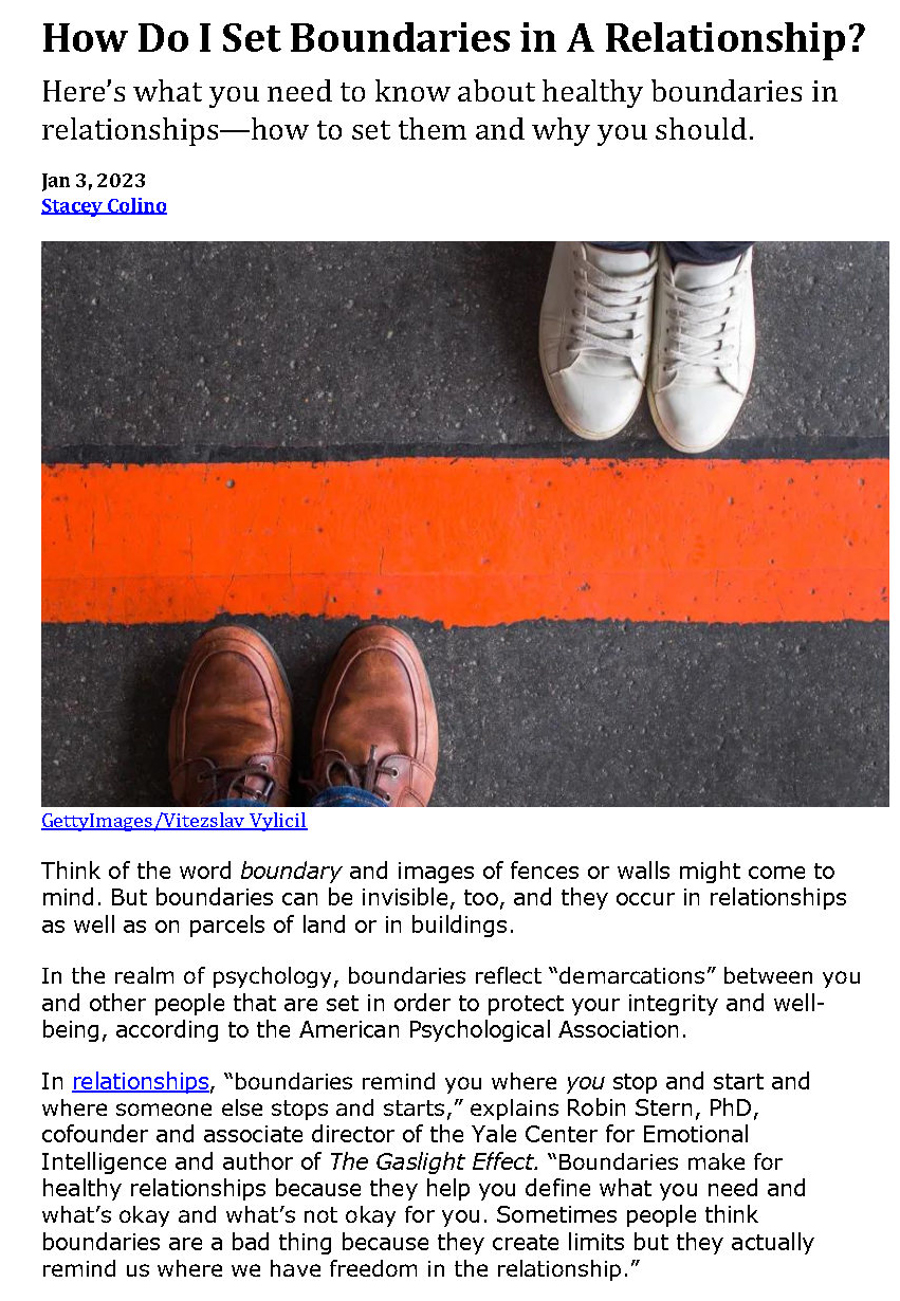
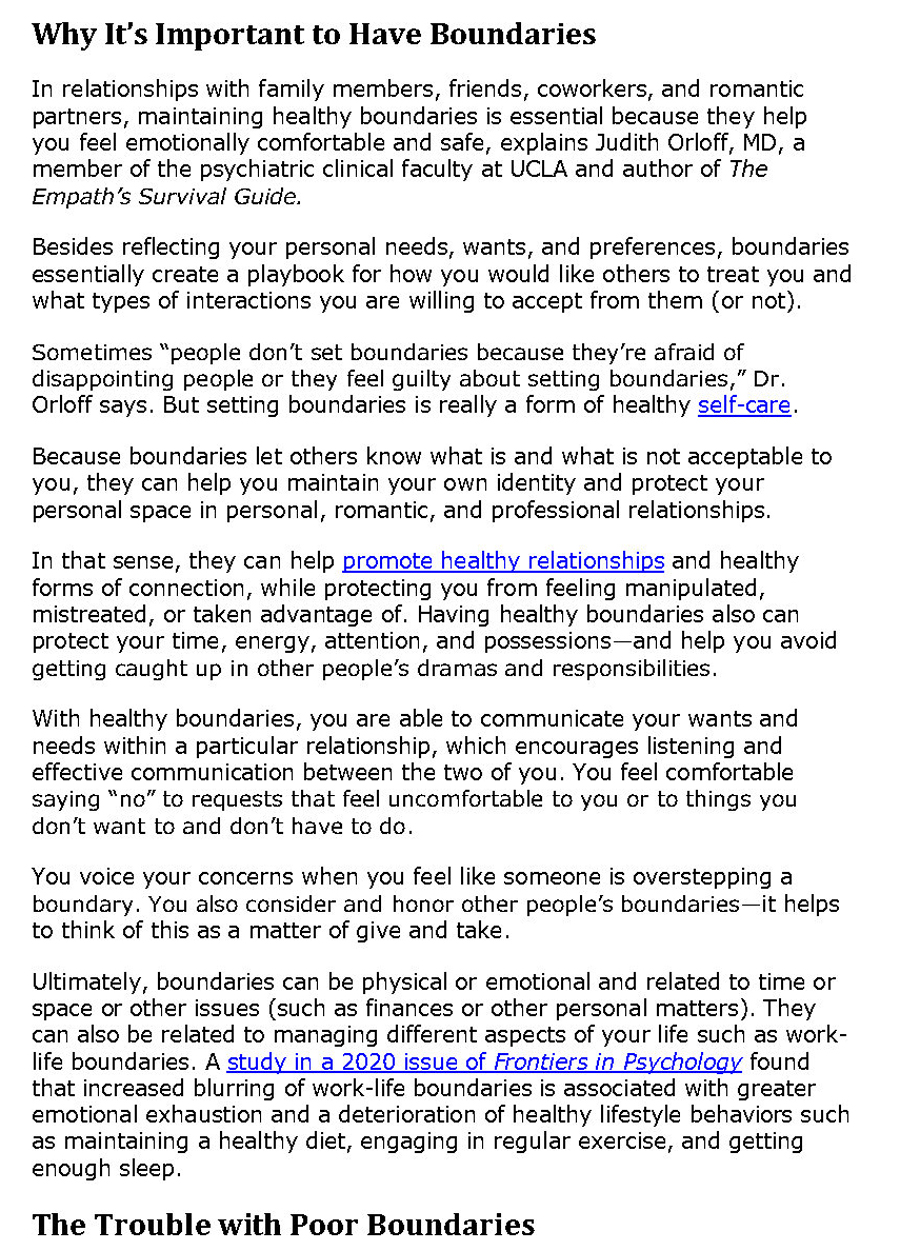
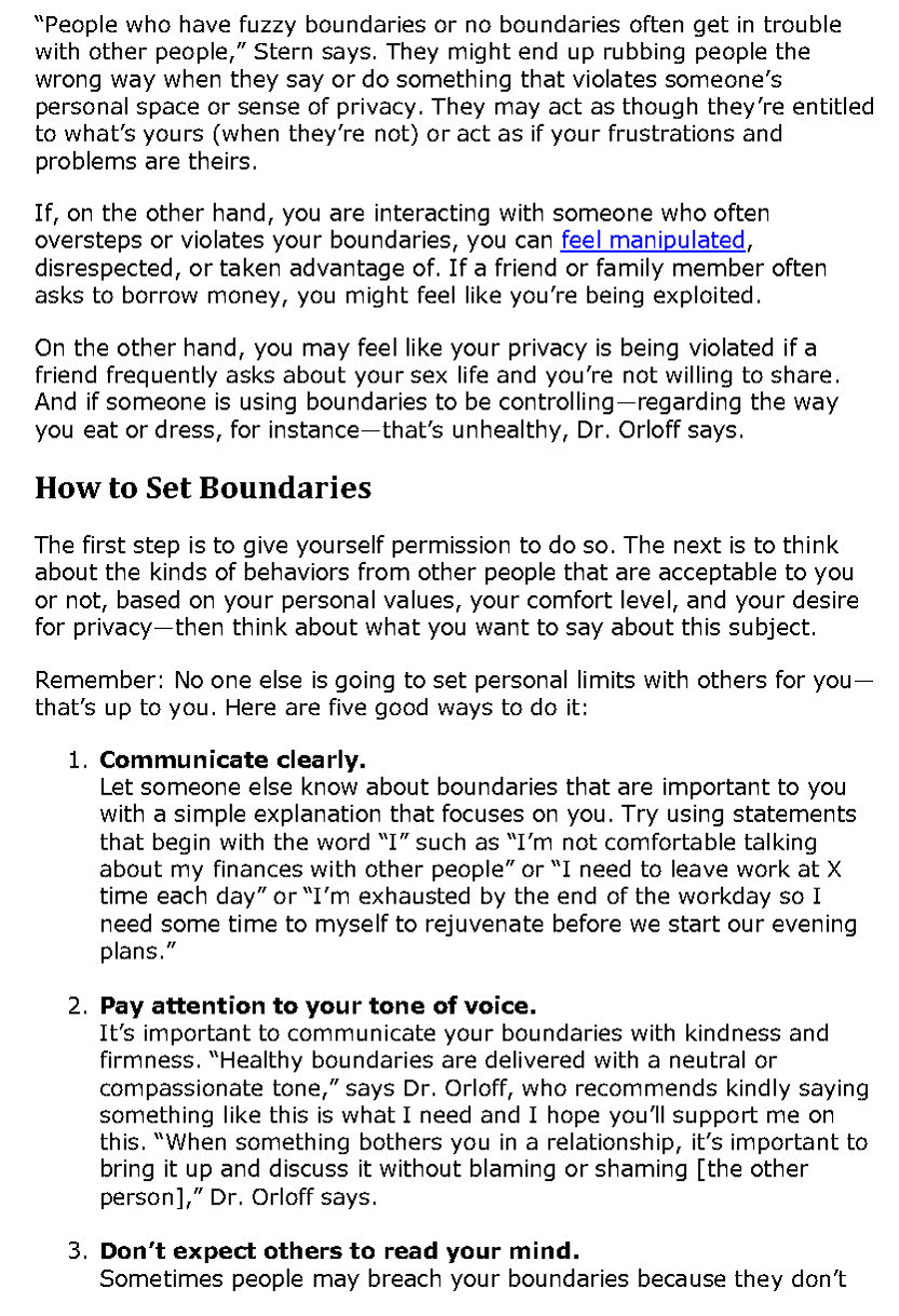
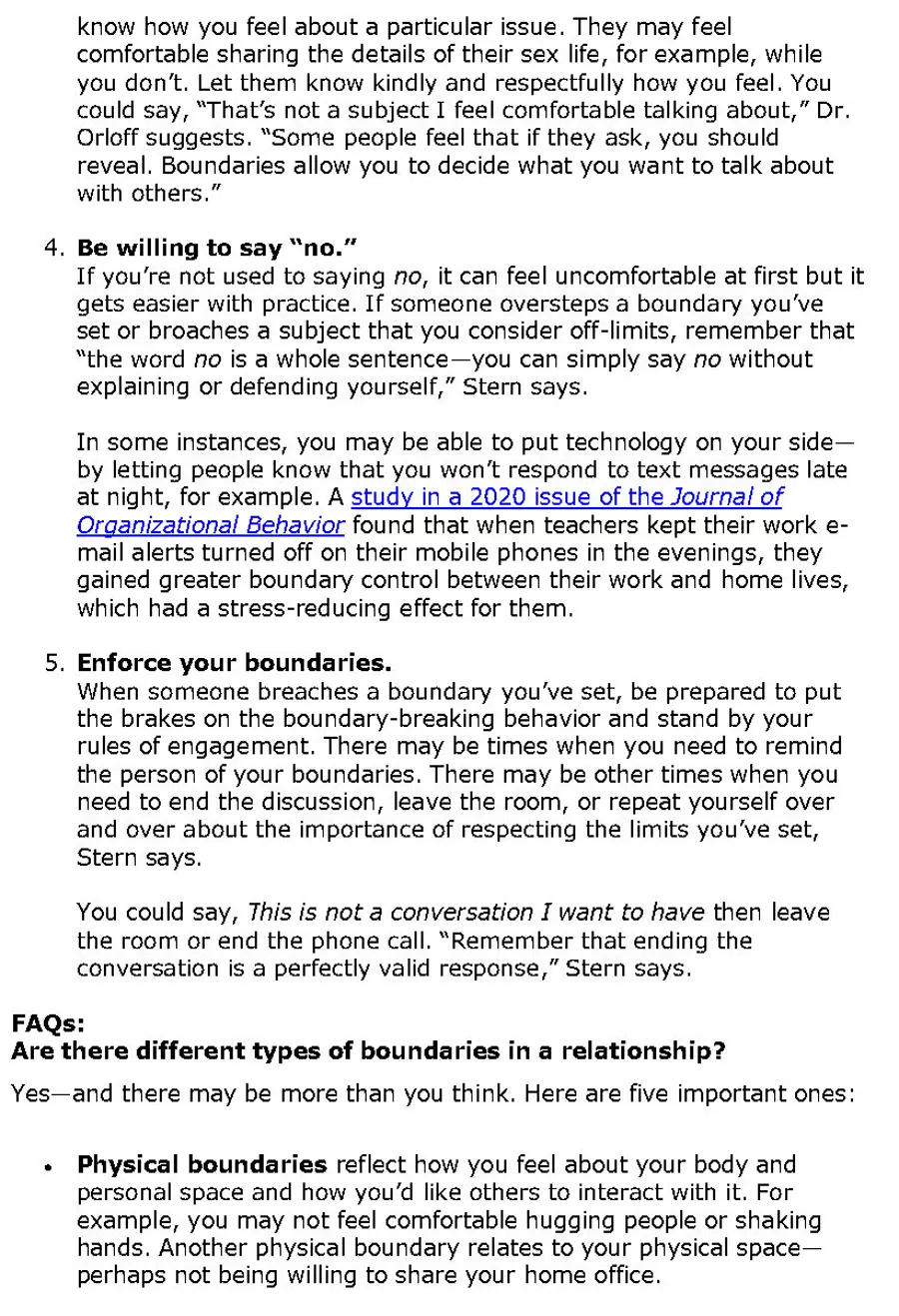
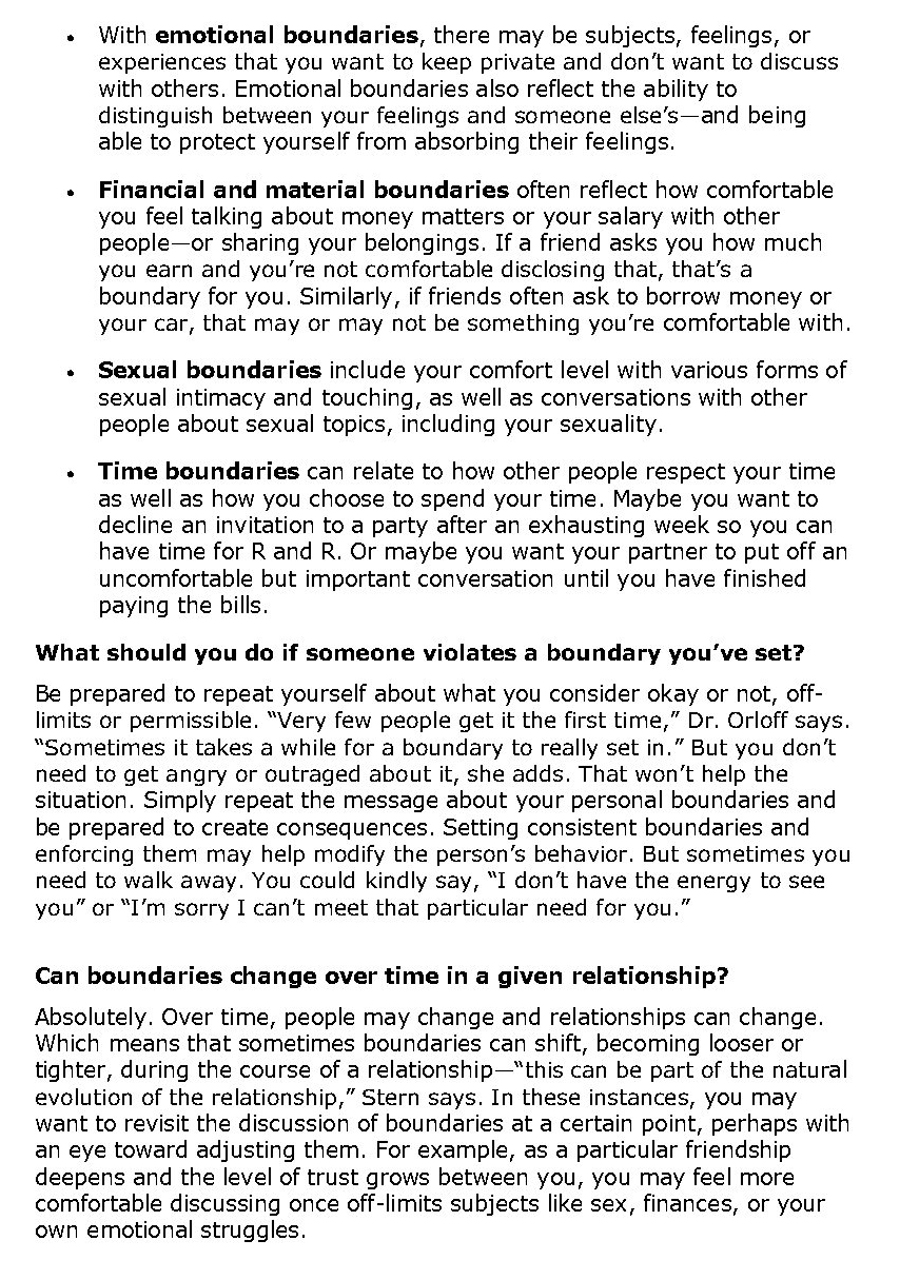
It may sometimes be awkward to set healthy boundaries with negative or draining people, but it is an important skill to learn. If someone has unrealistic expectations of you or unable to respect your feelings remember “No” is a complete sentence. A key to setting boundaries is to come from a centered, unemotional, place—not to be reactive. For example if someone has been saying disparaging comments about you, from a heartfelt center say, “Please don’t talk about me to others. It’s inappropriate and disrespectful.” Then refuse to argue about it, even if your buttons are pushed.
Here are some additional tips from my books, “Emotional Freedom” and “Positive Energy” to help you set boundaries, especially when it feels really awkward.
Dealing with an Emotional Drainer
If you meet someone and your energy starts bottoming out, don’t think twice about politely removing yourself from this killing interchange. One of my favorite foolproof lines is, “Excuse me; I really have to go to the bathroom.” Even the most intrepid vampire doesn’t have a counter-argument for that. It’s important that you move at least twenty feet from beyond the person’s energy field. Whenever your well-being feels at risk around certain people, make a tactful and swift exit. In a spot, physically extruding yourself is a sure, quick solution.
Dealing with a Constant Talker
The secret to dealing with a constant talker is knowing they don’t respond to nonverbal cues. You have no choice but to make your needs audible. Tone is especially critical with these vampires. They’re hypersensitive to rejection, which provokes them to ramp up their verbiage. So, with a constant talker try to be caring–these are wounded people!–but stay definite and neutral. Then, from a heart-center, set the parameters of your dialogue. Then you won’t be left limp, resentful, or forced into rudeness. You can politely say, “I’m a very quiet person, so excuse me for not talking a long time,” or “I feel left out when you dominate the conversation. I’d really appreciate a few minutes to talk too.”
Click HERE to learn more tips on how to set boundaries with draining people.


